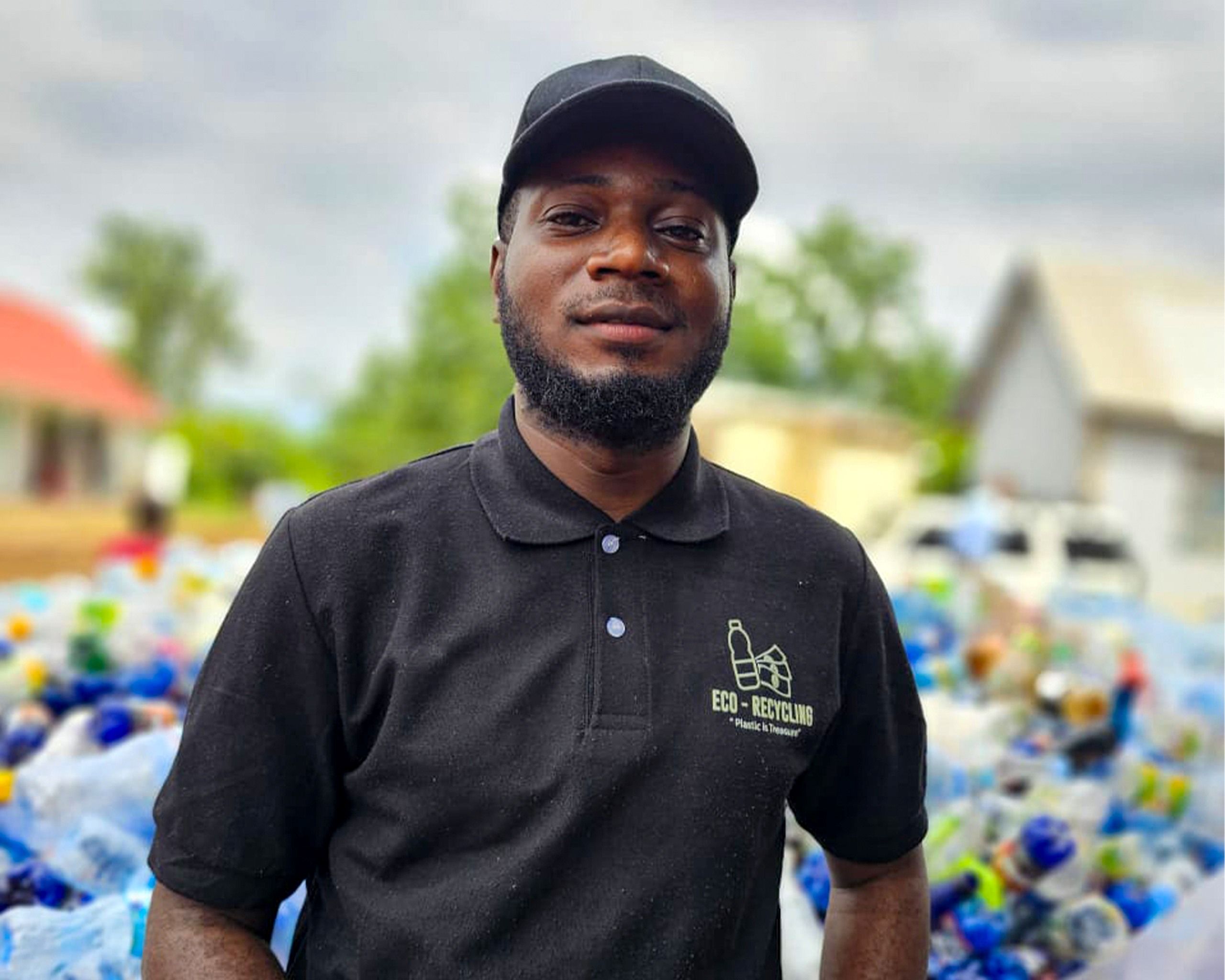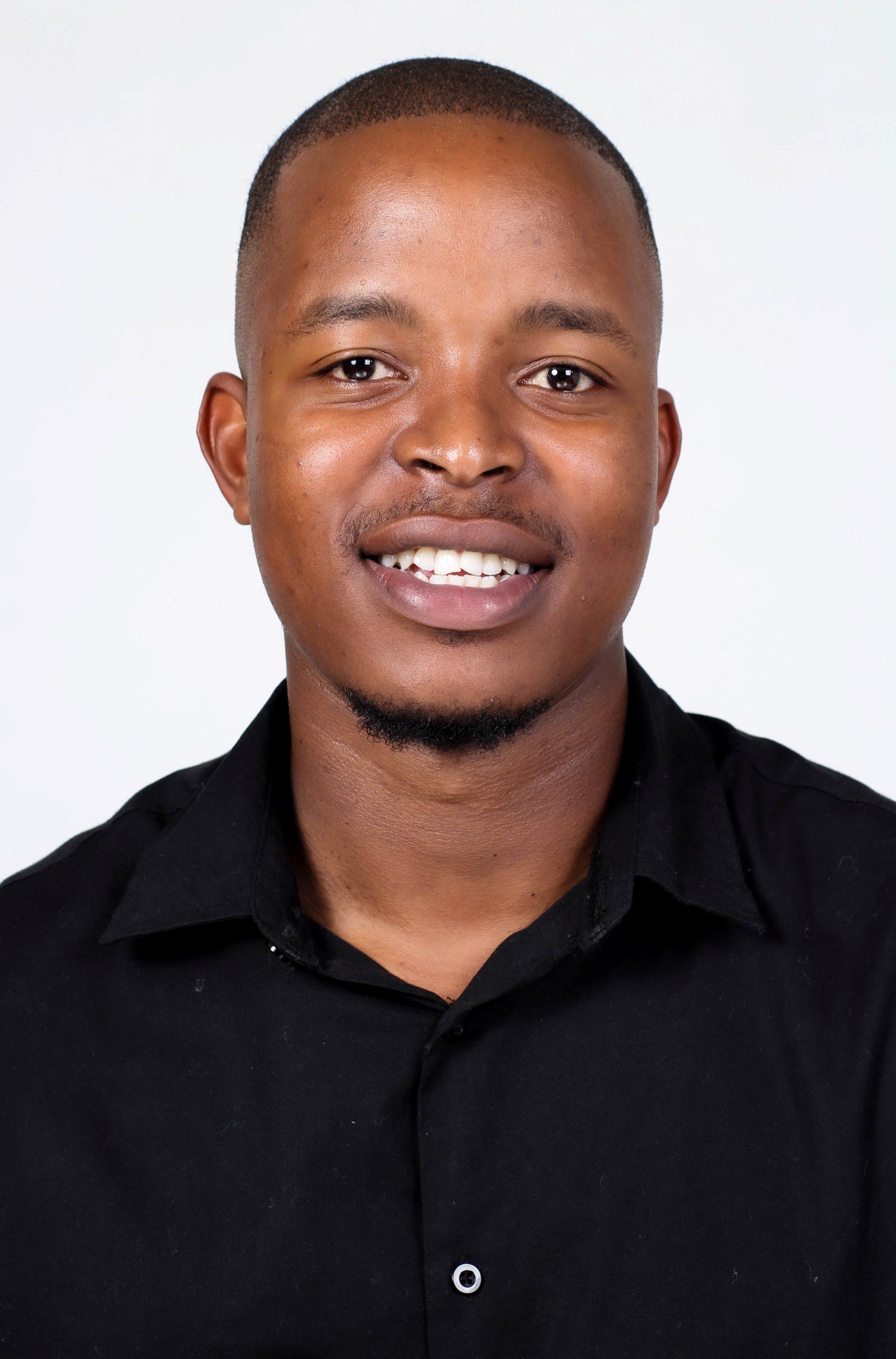Peter Njoroge Kagwe, who goes by the stage name Sharvin, is a music artiste. He recently dropped a new music video on Youtube, Baki na Mimi (Stay With Me), and he runs a youth organization called Focused Youth Movement. The mandate of his organization is to empower the youth and help restore those who lost themselves in drug abuse.
A businessman in his mid-twenties, he readily offers an affable smile that quickly makes you realize he is a kind and sociable young man. His dreadlocks have however made some people judge him wrongly at first impression, and when he started his music career journey, the same dreadlocks tore him apart from his relationship with his parents.
Sharvin narrated his story to me, of how passion for music broke his ties with his family, sent him to the streets, to remand prison at Industrial Area, and then back on track as a gospel musician and mentor to many youths in Kenya.
***
The year is 2012. Peter Njoroge is a student at St. Stephen’s Secondary School in Narok, a town he was born and brought up in. Peter is passionate about dancehall music, and to pass time, he writes down the lyrics of dancehall songs and sings along with their original artistes (on radio). Redsan, mostly. He adores Redsan. If he ever becomes a musician himself, he wants to be just like Redsan.
He is popular in school as an entertainer who during break time, sings Redsan songs and buoys the moods of other students in this mixed secondary school. The school is a mixed day and boarding institution. Peter and most of his friends are day scholars.
He is just a young kid with fire for music burning in his heart. But unbeknown to him, there is a ticking clock, drawing him nearer to disaster. His life is about to plunge into unthinkable darkness. Tick, Tock.
While in form four, one of his friends records a song at a local music studio. It goes without saying, that as a “musician”, Peter hangs out with others like him. It’s that thing that they say about birds of the same feathers.
“Hey, I have recorded my own song. Unlike you who can only sing along to Redsan lyrics, I'm better than you” the friend boasts.
“That sounds like a challenge to me. And you know, I’m never one to back out of a challenge.”
With that, Peter writes his own lyrics, guided by dancehall music instrumentals he downloads on the internet. He diligently practices, sings it to some of his schoolgoing friends, and the flow blows them all away.
“You’re the GOAT!” They tell him.
Armed with this uplifting validation, Peter walks into a small recording studio in Narok town and from his savings, pays one thousand two hundred shillings to record an audio song. The producer wants to support him.
Soon, he has a new track out, his own, and he's never been more proud of himself. A club banger titled, "Party Time".
“Goodness, I really can do this!” He shrieks, punches the air. Elated. Dreamy. Visionary. A music career is what he wants to pursue as soon as he completes high school. Kenya and the world, are you even ready for his talent and prowess at verse-spitting?
Tick, Tock.
***
Peter has sat for his KCSE examinations and is now at home, with all the time to write more music. The results won’t be out for months. His song, Party Time, gets him a few gigs in local clubs and bars and events where he is invited to perform. Most of these are at night. Now, that rubs his parents the wrong way.
Strike one.
Peter has clearly proven that he can act the part, by rapping alongside Redsan lyrics. But can he look the part? Oh yes, he can! He starts rolling his hair into small locks.
Strike two.
His parents are mad at him, they have a tiff with him every now and then, but nothing really serious. Yet.
The adolescent in him tells him to go all the way, look like an artiste. He gets a couple of piercings.
Strike three.
At this stage, their home has turned into a fighting ground. Peter’s little sister, about three years old at the time, witnesses as her brother is berated and punished on a daily, for his waywardness. The parents can’t let him spoil under their watch, not after all the effort they put to raise him up in a Christian setting.
Narok revellers are elated, because Grand Pa records are coming to town, and music like never before will go down at a local club. Among the upcoming local artistes called to curtain raise, is Peter. By now, he has already picked his stage name; Sharvin.
Tick, Tock.
The wheels to his devastating cut-of-ties with his family keep rolling.
Event organizers print posters and stick them on electricity posts and walls all over Narok town. On the posters, although a tiny picture, is that of Sharvin. The baby locks and bad-ass artiste style are visible in this picture that sells him as one of the curtain raisers for the event. Which will be at night. In a club. His dad comes across one of these posters, and that’s his anger’s tipping point.
“I’ve seen your face all over the town, on posters. I tell you, you will not perform at that club. Not under my watch. You go ahead and perform, and I will disown you. You pack your bags and leave my house.”
Sharvin promises his dad that he won’t perform at the club. On the night of the event, however, he sneaks out of his home and goes to the event his dad warned him against.
The show is great. Sharvin is a Beast, he entertains masses at the club. They take note of his name, saying, “That young man will be a great musician, someday. Remember his name.”
A teenage Sharvin is paid five thousand Kenyan Shillings. In the mind of a high school leaver, this is a lot of money. Whoa! Dreams really do come true.
***
Early in the morning hours, precisely 4 a.m., the following day, Sharvin sneaks back home. But something is seriously wrong. He angered his dad, a man who is not to be crossed. Retaliation is a must. Sharvin’s small house which is separate from his parent’s main house stands in the same compound. It has a cemented floor, iron-sheet walls, and a wooden door. This dawn, the door is missing. The dad ripped it off its hinges, and also brought down an entire wall. It’s no longer what was once Sharvin’s house but an open space with three walls. And memories of what used to be a house.
At the first hint of sunrays, Sharvin and his dad are at it again. The fighting. This time, the dad wants his son gone. Sharvin’s mother has been indirectly supportive all along, but now that the dad is raging and dead serious, she can’t dare take her son’s side.
“Okay, I’ll go! I’ll be fine by myself. Music is what I choose!”
Sharvin, angry and adolescent, packs a bag and leaves. He crashes at a friend’s place. In his teenage mind, he knows, no, he is sure, that his parents will come looking for him, soon. Weeks pass by, and then months. Nothing. The threat was real, and his dad is making good on it. The little money Sharvin had soon runs out. He can’t keep burdening his friend. He resorts to taking walks near his home, hoping that his parents will see him and call him to patch things up.
A mother's love is always strong, and true to this battered yet profound saying, Sharvin’s mum lets her son in whenever she sees him. On only one condition, that her husband has to be away. She quickly feeds him and gives him some money. Their little secret, however, crumbles like a rock made of loose particles, when, Sharvin’s innocent three-year-old sister tattles on her mum and brother to daddy.
“Ata Peter hukuja hapa ukiwa umeenda.” (My brother comes here when you are away.)
Sharvin’s mum gets in trouble, and it soon escalates from angry questions to beatings, because, upon investigations, the dad figures out that his wife has been sending some money to their “notorious” son via M-Pesa. A son he cut off.
When word of his mother's suffering reaches Sharvin, it breaks his heart. He tries to reach out to his dad and make amends, but his efforts are unwelcome. His dad wants him gone. Amidst so much pain and faced with nothing but hopelessness, he vows to leave Narok for Nairobi, hustle hard, make it big in the music industry, and prove his dad wrong.
A courageous Sharvin goes home one last time to face his dad.
“I want my national identity card. I’m leaving for Nairobi.”
“You will not have it!” his dad fires back. “I won’t let you use the family name.”
Clearly repulsed and disappointed by his son, Sharvin’s dad adds comments that would live with Sharvin, forever.
“With those dreadlocks, they will shoot you dead in Nairobi. I wait for a day they will call me to come collect your body!”
***
When Sharvin gets to Nairobi in 2013, it's his first time setting foot in the city. He doesn't know anyone. It's just him, his dream, a backpack, and hope that a deal he is close to clinching will go his way. A record label in Nairobi has promised to sign him and give him accommodation.
The deal goes sideways.
This leaves Sharvin with no place to go, apart from the streets of Nairobi. He had sold his battered phone at a loss to get money for fare to Nairobi and has none on him to travel back.
The Modern Coast bus stage in Nairobi becomes his home. He walks the streets during the day, and then sleeps at the bus stage at night, in the company of night travellers waiting to catch an early morning bus. Soon, he changes his “home” and takes it to Nyama Kima stage.
Weeks pass by. He has to eat. He is tired of begging. Filthy and stinky, he needs a good bath. But more importantly, he needs food. Sharvin begins rummaging garbage cans for food. In Nairobi, the streets have rules. There are areas you can't go to sleep or look for food if you are not in the family of the street kids.
[caption id="attachment_16268" align="alignnone" width="534"] Performing artiste Sharvin[/caption]
Performing artiste Sharvin[/caption]
***
A stranger who must have been observing a frail and skinny and dirty Sharvin approaches. It’s mid-2013. (Sharvin left home before his KCSE results came out. When they came out, he didn't even know what he scored. He learned about his grades three years later.)
The stranger proposes a deal. He wants to recruit Sharvin to help him make drop-offs to clients. Drugs. Some are hard drugs, and Sharvin is the best for the job because he is “tiny” and “no police will stop a kid like him.”
It’s seemingly the only option Sharvin has. To entice him, the stranger gives him money. Good money, enough for him to eat and clean up. He says yes to the deal.
Months later and Sharvin is making a decent income from the random drop-offs in Nairobi. Enough income that he has rented a small room in Rongai. He doesn’t know the source of the drugs, but from the phone calls he overhears, though one-sided, he can tell that his employer is only a middle man. He doesn’t care, though. There are clients. He doesn’t need to know their details. His job is to collect the drugs and drop them off where he is told, and then get paid. He has a small room. And food. He will save up the money and do music, maybe even start a business.
All this time, he hasn’t tried to reach out to his family. And neither have his parents reached out. Sharvin is bitter, and he has an ego. Definitely not a healthy one, but he has sworn to prove his dad wrong.
***
On a balmy Saturday afternoon, as he is walking towards Kirinyaga road for a drop-off, home-clothed police stop him.
“Kid, what do you have in that bag?”
Sharvin can’t really tell how he is the specific one that they stop in a street bustling with activity. Did someone rat him out? Maybe.
On this day, he is carrying drugs. Although in very small amounts, but drugs all the same. Illegal drugs.
Sharvin spends the night at Kamukunji Police Station. When reality hits him hard like a slap on the face with a bucket of cold water, his mind calls back his father’s last words to him,
“With those dreadlocks, they will shoot you dead in Nairobi. I wait for a day they will call me to come collect your body!”
Things happen so fast. The world beneath his feet is swirling. He cries. He is scared. They interrogate him, wanting him to give up the name of the guys who own the drugs. He doesn’t know, as he has been picking the package from different people, introduced to him by the stranger he met. It’s a chain, and he has no real name he can give up.
Sharvin ends up in remand prison, Industrial Area, for six months as he awaits a court hearing.
***
Six months later, after a court hearing, a single one, Sharvin is released. He is unable to clearly tell what and how it happened. A miracle, he calls it. He only recalls telling the judge that he was underage (he lied). The feeling was that someone forced a minor into this, and that person was the one the government was after. A minor had served time at remand prison for six months. Let him go. With a warning, and a lot of pep talk that he should go back home and make something out of his life.
Sharvin doesn’t talk much about the things that happened in remand. Maybe he isn’t ready, yet, but some details sneak out clothed in some of the lyrics of his gospel music, some recorded, some yet to be released publicly.
He thanks God after being released. He cries. He can't believe that he is alive and free. Sharvin can’t go back to the streets, or to Rongai. There are rules and assumptions. Once you are caught and then freed, it’s likely you have struck a deal with the police to be a rat. A disgusting sell-out.
Sharvin borrows some money and travels back to Narok, his home town.
***
He can’t go back home. He is bitter that his people never looked for him. He misses his mother and baby sister. He hates his father.
Sharvin gets a job at a car wash. He cleans vehicles and earns enough to survive on. 2013 is coming to an end.
Narok is a small town. Word quickly reaches his family, that Sharvin has been spotted in town, washing cars. His father doesn’t care. His mother does. She takes her younger daughter and goes out looking for her son.
On a random day at the car wash, from a distance, Sharvin sees his mother and baby sister, stranded, throwing eyes allover the place as if looking for someone. He is emotional and happy to see them. He drops his work gear and runs toward them. When his mother spots him, however, she lets fly a wail that quickly attracts attention.
It is then that Sharvin realizes he is dirty and thin, worn to a frazzle. He can’t stand his mum’s screams, as they hurt him. He notices how big his baby sister has grown, before turning and running away.
That scene at the car wash haunts him. He is hurt that he has hurt his dear mother. Sharvin vows to work so hard and make something out of his life, then go looking for his mother.
***
Do you believe in miracles? They do happen. Ask Sharvin, for he knows better.
With the little income he earns at the car wash, he buys a new phone and replaces his old sim card. Just then, a strange call from a guy who introduces himself as Alan comes through.
“Is this Peter Njoroge Kagwe?”
“Yes. And who is this?”
“Alan. I worked with Nairobi Aviation College some time back, during a talents show where you emerged position two…”
While in the streets of Nairobi, before getting arrested, Sharvin had bumped into a childhood friend from Narok. The friend schooled at Aviation College. During their fresher’s night, he sneaked Sharvin into the school under the disguise of a fellow first year. Sharvin performed at a talent show and bagged first runners-up. He was awarded some cash money, and gifts. Then that was it.
And now, a year later, Alan, a man who runs some businesses in South Africa, is calling him. He had made a promise to sponsor top talents, and he is calling to keep it. He wants Sharvin to show up at his office in Nairobi. The promise is that as from second year, he will pay half of Sharvin’s school fees (Alan believed Sharvin was a student at Aviation College)
It’s a shaky opportunity for Sharvin because he is not a student at the college. He however sees it as a rare chance to go back to Nairobi and change his life. As Eminem asks in his music Lose Yourself, "will you capture it, or just let it slip..."
This time, however, Sharvin decides to involve someone. His dear mother.
***
Months into 2014, Sharvin is in school, Kenya Institute of Media and Technology, pursuing a diploma in Mass Communication. He says it’s God.
After seeing his mother and explaining what was happening, they whipped up a plan. Behind his father’s back. Sharvin’s mum took her son to Nairobi to meet Alan, and the rest is history. There are good people out here, and Alan is one of them.
Sharvin feels eternally indebted to him.
Alan begins to pay half of the fee, and then Sharvin secretly works with his mum to raise the other half. He enrolls in Kenya Institute of Media and Technology, Aviation College’s sister school.
Raising the fee is tough. His mum can’t make huge payments without his dad taking notice. Sharvin has to get off-class jobs to help his mum out with the new burden.
And then his life changes, for good.
At his new school, he makes Christian friends. They are upcoming musicians. Gospel artistes. Walking with them inspires him to record a gospel song, Guide Me, although he isn’t really saved but only does it for fun. Later, his new clique invites him to church where he meets their pastor and mentor. It only takes a few months and Sharvin gives his life to Christ. He begins to grow spiritually under the pastor.
His next music is gospel, this time from his heart. The title is, Unanipenda (You love me)
He records it and it becomes an instant hit, especially in Narok town after masses hear of their “boy” testifying on radio and TV interviews. His name and the story spread in Narok like a bushfire. Peter a.k.a. Sharvin is saved. He is doing gospel music. His new music is dope. He has a new father, a mentor who is a pastor.
Word reaches his dad, who discovers the secretive moves his wife made to support their son. This time, he isn’t angry. He is emotional. He regrets some of his actions. He wants his son to come home so they can talk and patch things up, and he wants to organize a launch for his music, Unanipenda.
At first, Sharvin wants nothing to do with him, but after talks and guidance from his pastor, he agrees to talk with his father, and salvage what’s left of their relationship.
[caption id="attachment_16266" align="alignnone" width="600"] Sharvin performing at the event of a politician in Kirinyaga[/caption]
Sharvin performing at the event of a politician in Kirinyaga[/caption]
***
It’s 2022. Sharvin cleared his diploma and graduated. He made amends with his family. He doesn’t have a super close relationship with his father, but they are trying. Each day palms out a new opportunity to be closer. He loves both his parents.
Sharvin lives in Nairobi and works as an events planner. He also runs Focused Youth Movement, a group he uses to mentor youths. He still has his dreadlocks. He is passionate about Media. He has released other gospel hits, including Unikumbuke (Remember Me), Nisamehe (Forgive Me) featuring Simbo Owade, and a few weeks ago, Baki na Mimi (Stay With Me). The shoot of Unikumbuke has a scene (act) of Sharvin injecting drugs.
In 2019, Sharvin gave an interview to CS Online TV.
Watch his latest music:
https://www.youtube.com/watch?v=akXsuAGX7V4&ab_channel=SharvinSharv





